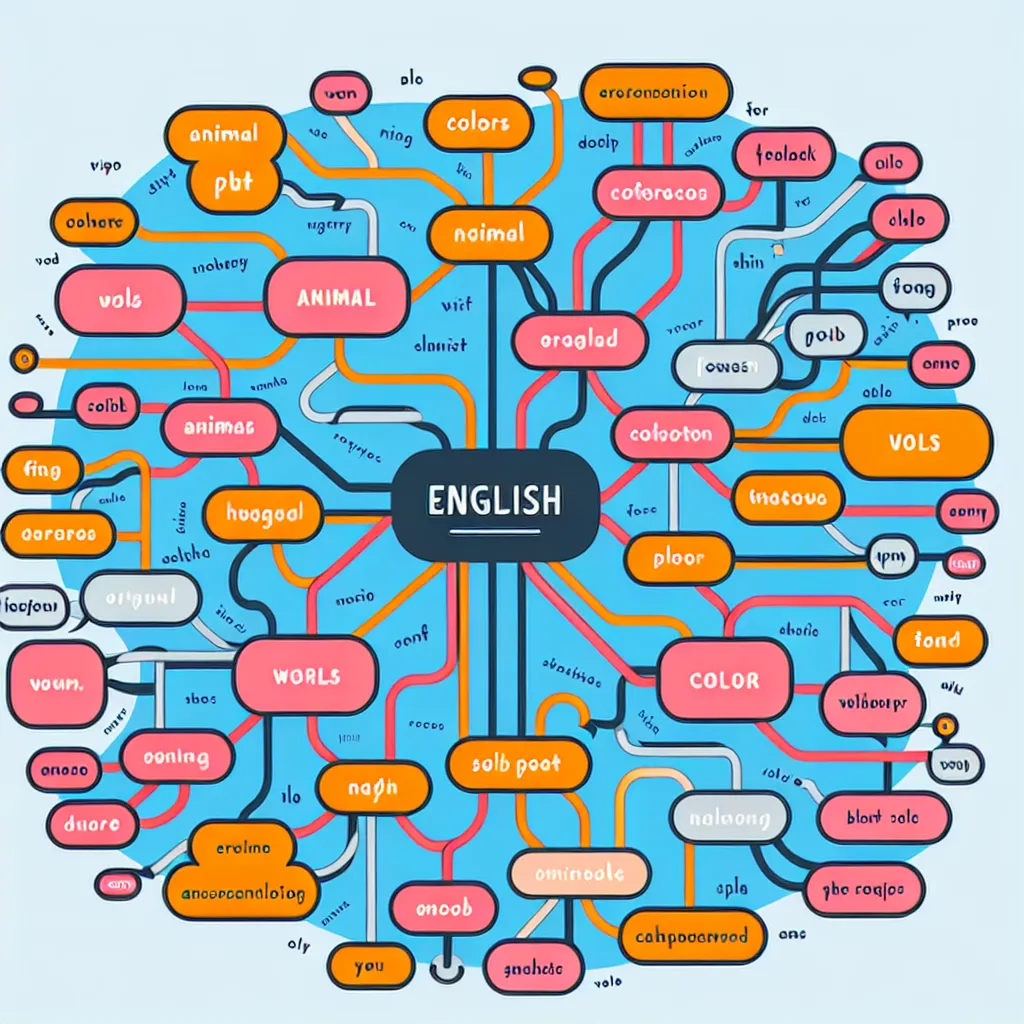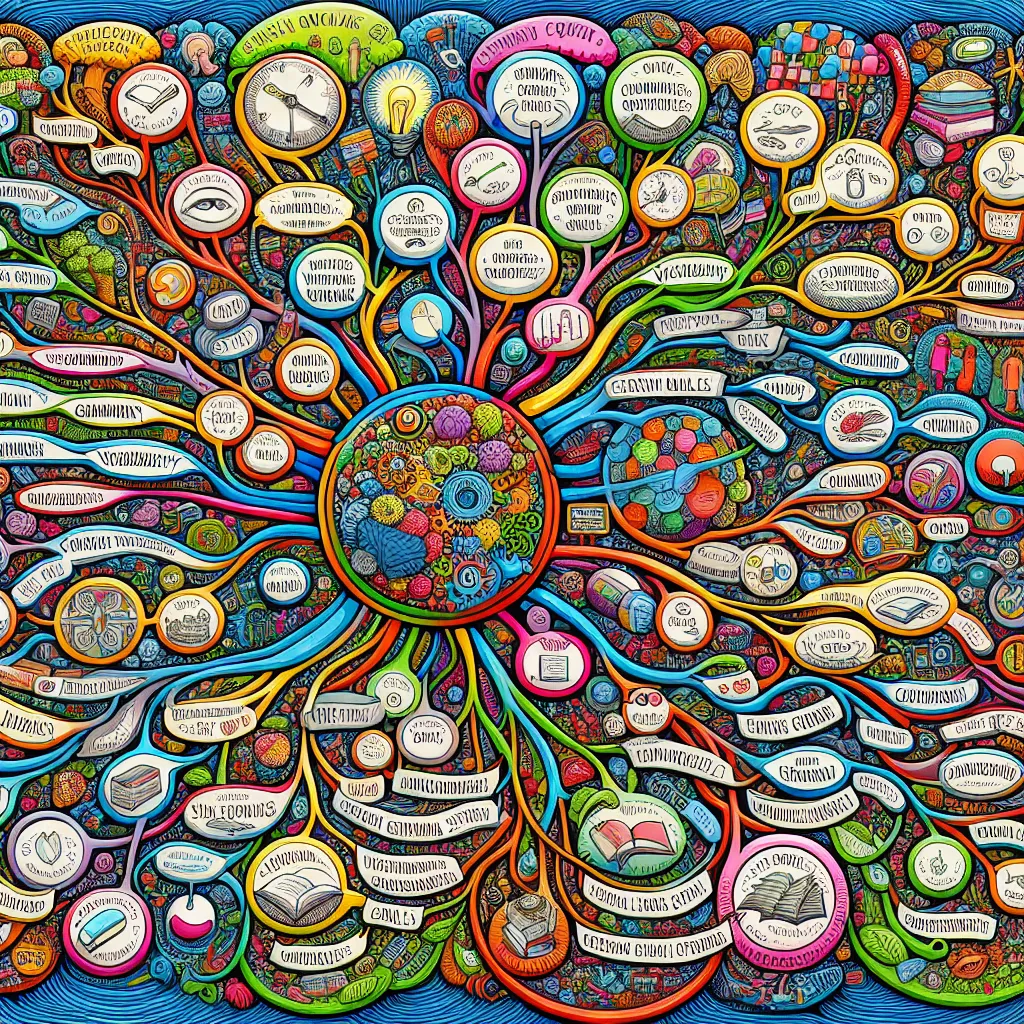Word association games are powerful tools for enhancing English language skills. These engaging activities not only make learning fun but also help strengthen vocabulary, improve memory retention, and boost overall language proficiency. In this article, we’ll explore some effective Tips For Learning English Through Word Association Games, providing you with valuable insights to accelerate your language learning journey.
Understanding Word Association Games
Word association games are exercises that involve connecting words based on their meanings, sounds, or other relationships. These games tap into the brain’s natural ability to create links between concepts, making them an excellent method for expanding vocabulary and improving language recall.
 Word Association Game Concept
Word Association Game Concept
Why Word Association Games are Effective for English Learning
-
Enhanced Vocabulary Retention: By creating mental connections between words, learners are more likely to remember new vocabulary in the long term.
-
Improved Cognitive Skills: These games exercise the brain, enhancing critical thinking and quick decision-making abilities in English.
-
Natural Language Use: Word associations mimic the way native speakers naturally connect ideas, helping learners think more fluidly in English.
-
Versatility: They can be adapted for various skill levels and specific learning goals, making them suitable for all types of English learners.
Tips for Maximizing Learning with Word Association Games
1. Start with Basic Categories
Begin with simple categories like colors, animals, or food. This approach helps build confidence and establishes a foundation for more complex associations.
Example:
- Start with “Red” and associate: Apple, Fire truck, Rose, Strawberry
2. Use Visual Aids
Incorporate images or real objects to reinforce the connections between words. This multi-sensory approach enhances memory retention.
Tip: Create a vision board with pictures representing new vocabulary words and their associations.
3. Implement Timed Challenges
Set a timer for word association exercises to improve quick thinking in English. Start with 30 seconds and gradually reduce the time as skills improve.
Example Challenge:
Name as many words associated with “Beach” as you can in 20 seconds.
4. Explore Different Types of Associations
Experiment with various types of word connections to broaden your language skills:
- Synonyms: Happy – Joyful – Delighted
- Antonyms: Hot – Cold, Big – Small
- Rhymes: Cat – Hat – Mat
- Word Families: Teach – Teacher – Teaching – Teachable
5. Create Storytelling Chains
Link words together to create a story, enhancing both vocabulary and narrative skills in English.
Example:
Sun → Beach → Sand → Castle → Knight → Horse → Ride → Adventure
6. Utilize Online Resources and Apps
Take advantage of digital tools designed for word association games. These can provide structured practice and track your progress.
Recommended apps:
- Word Association Network
- Wordsmith
- FreeRice (also contributes to charity)
 Word Association Apps on Smartphone
Word Association Apps on Smartphone
7. Practice Regular Review Sessions
Periodically revisit words and associations you’ve learned to reinforce memory and expand on previous knowledge.
Tip: Keep a journal of new word associations and review it weekly, adding new connections each time.
8. Engage in Group Activities
Participate in or organize group word association games to benefit from diverse perspectives and increase engagement.
Ideas for group games:
- Word Chain: Each player adds a word associated with the previous one
- Category Race: Teams compete to list words in specific categories
9. Focus on Contextual Associations
Practice associating words within specific contexts or situations to improve practical language use.
Example:
Context: “At the Airport”
Associations: Ticket, Luggage, Passport, Gate, Security, Boarding
10. Combine with Other Language Skills
Integrate word association games with reading, writing, listening, and speaking exercises for comprehensive language development.
Activity idea: After a word association session, write a short paragraph using the associated words, then read it aloud or discuss it with a partner.
Common Mistakes to Avoid
-
Overreliance on Translation: Try to think directly in English rather than translating from your native language.
-
Ignoring Pronunciation: Pay attention to how words are pronounced to avoid misconceptions in associations.
-
Limiting to Single Words: Don’t forget that phrases and idioms can also be part of word associations.
-
Neglecting Context: Remember that words can have different associations in various contexts.
Next Steps in Your English Learning Journey
-
Set Weekly Goals: Challenge yourself to learn a certain number of new word associations each week.
-
Join Language Exchange Communities: Practice your word association skills with native speakers or other learners.
-
Create Your Own Games: Design personalized word association games based on your interests or learning needs.
-
Explore Advanced Techniques: As you progress, try more complex association methods like creating mind maps or using mnemonic devices.
-
Incorporate into Daily Life: Make a habit of playing quick word association games during idle moments in your day.
For more ideas on making English learning fun and engaging, check out our article on ways to make English learning fun.
Conclusion
Word association games offer a dynamic and effective approach to learning English. By implementing these tips and regularly engaging in word association activities, you can significantly enhance your vocabulary, improve your language recall, and develop more natural English language skills. Remember, consistency is key – make word association a regular part of your English learning routine, and you’ll soon see remarkable improvements in your language proficiency.
We encourage you to start incorporating these word association techniques into your study routine today. Share your experiences or favorite word association games in the comments below, and don’t forget to explore our other articles for more English learning tips and strategies.




